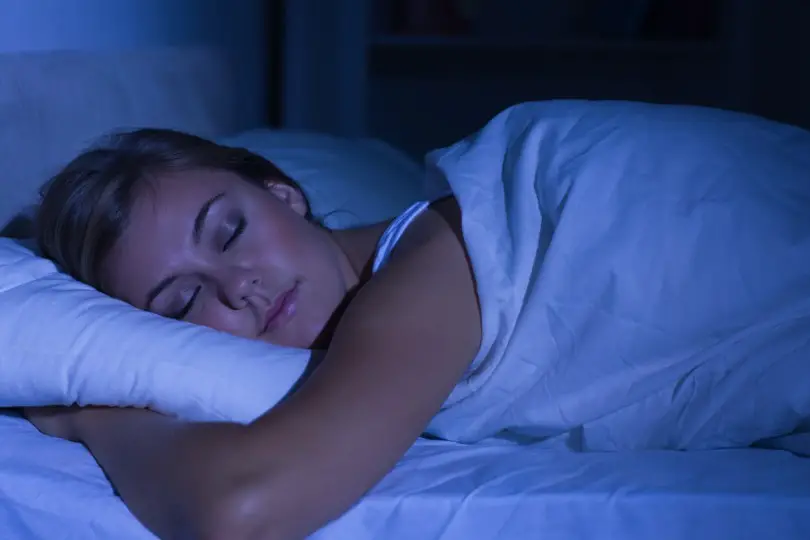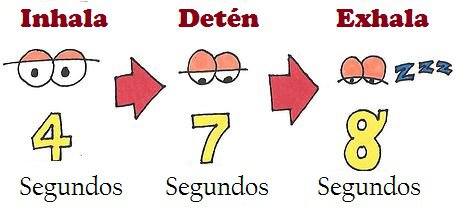Sleep is something precious that we tend to take for granted – until we can’t fall asleep. With so many things to do during the day, we have very few hours to recharge for the next day. If you’re anxious, over-stimulated or had caffeine, falling asleep is a battle and it will be difficult to get to sleep, even when you’re completely and utterly exhausted.

Getting enough sleep is fundamental for your health. Your body carries out a set of different processes while you are asleep and these are essential for feeling renewed and revitalized. Maintaining your health is one of the most important things you have do to have a full and satisfying life. Understanding how insomnia affects you can help you see the importance of taking matters into your own hands to solve this sleep disorder.
The effects of insomnia on health
High blood pressure – People who don’t get enough sleep have a higher risk of developing high blood pressure due to the fact that their bodies never have the chance to relax.
Heart disease – High blood pressure and increased anxiety from lack of sleep can lead to heart disease.
Weight gain – Lack of sleep can cause increased appetite and changes in metabolism that can cause weight gain.
Weight loss – You can lose your appetite and may lose weight too quickly.
Increased risk of cancer and diabetes – Researchers have found that insomnia can trigger the hormones and proteins responsible for increased risk of colon cancer, breast cancer, diabetes and other diseases.
Weakened immune system – A reduction in the functioning of the immune system can cause you to be more susceptible to illness.
Gastrointestinal problems – You can experience constipation or diarrhea.
Vision problems – Some people experience blurry vision.
Increase in headaches – You may start to experience chronic headaches as a result of tension from not sleeping.
Learned insomnia – An unpleasant vicious cycle can be caused by over-analyzing and worrying about not being able to sleep. People who struggle to get to sleep often don’t, and this leads to more insomnia.
Other problems from insomnia
The health effects from not getting enough sleep aren’t the only things that can affect your daily life; it can hamper your normal abilities, making you lose friends, family or your job.
Inability to manage stress – When you don’t get enough sleep, you can have a bad time managing stress, which makes you feel agitated and overwhelmed.
Irritability – You may experience irritability, making it difficult to be around people or go about your daily routine.
Lack of focus and concentration – Feeling exhausted can interfere with your ability to pay attention.
Memory loss – You may experience both short-term and long-term memory loss. Older people experience memory loss much earlier if they suffer from insomnia.
Reduced reaction time – Lack of sleep can cause a slowing of your reaction time. This can be dangerous if you work with machinery or drive a vehicle.
Reduced motor skills – You may find it harder to handle objects or do certain things.
Low self-esteem – You may have bloodshot eyes, dark circles under your eyes, look pallid, or other symptoms of insomnia that cause decreased self-esteem.
Increased participation in risky situations – You are much more prone to risk taking when you haven’t slept enough.
Increased risk of addiction – People who suffer from insomnia and find their lives crumbling around them sometimes resort to drugs, alcohol or other addictions to help with the effects of not sleeping.
Depression – You may suffer from symptoms of depression or depression may be the cause of your insomnia.
But there are solutions that can be effective at getting you to sleep and solving the problem of insomnia that’s driving you crazy. The following methodology is a simple and natural technique in which you only use your body and breathing to return to a relaxed state, which is necessary for your body to finally be able to fall asleep and get some rest.
How to fall asleep in 60 seconds
Dr. Andrew Weil is a renowned leader in integrated medicine who uses a holistic approach to confront the problems that affect our mind and body. Combining his excellent education from Harvard and the experience he has gained practicing medicine, Dr. Weil is an expert in managing diverse diseases that affect our health, including insomnia.
The 4-7-8 method to fall asleep

Dr. Weil is famous for his relaxation exercise, known as the 4-7-8 method. One of the biggest problems falling asleep is being in bed, trying to rest, but not being able to. You can spend hours tossing and turning, trying to sleep, in vain – and very often this becomes insomnia. The 4-7-8 method was designed to help you relax in bed, creating a state in which it is easy to fall asleep.
Step 1: Exhale
Get in a comfortable position, lying down in bed or on a comfortable sofa. Exhale slowly, pursing your lips as if you were whistling, and making a soft “buzzing” sound.
Step 2: Inhale and count to four
After exhaling, close your mouth and inhale through your nose, counting to 4.
Step 3: Hold your breath and count to seven
Hold your breath and count to 7. If possible, try to hold your breath for seven seconds. If you find this step too difficult, try to count to a lower number until you are able to hold it for 7 seconds.
Step 4: Exhale and count to eight
Exhale the breath that you’ve been holding over the course of 8 seconds. Purse your lips again (whistling) and exhale slowly, counting to eight.
Remember, inhale through the nose and exhale through the mouth. Remember that you should keep the ratio of 4-7-8 when doing this exercise. Don’t worry if you don’t get the numbers right the first time. Just keep doing the exercise over and over again until you are able to do the 4-7-8 seconds used in this technique. This will relax your body and make you feel sleepy, so it will be easier to fall asleep.
It’s not just used for sleeping. The 4-7-8 technique isn’t designed to be used only for falling asleep. This technique, curiously, can be used for simple relaxation and rest, calming down after a stressful experience and even controlling stressful impulses, like binge eating. According to Dr. Weil, this technique for falling asleep and relaxation is a “natural tranquilizer”.
Try to use this exercise at least twice a day. You’ll realize that the more you do it, the longer you are able to hold your breath and the more relaxed you’ll be.
